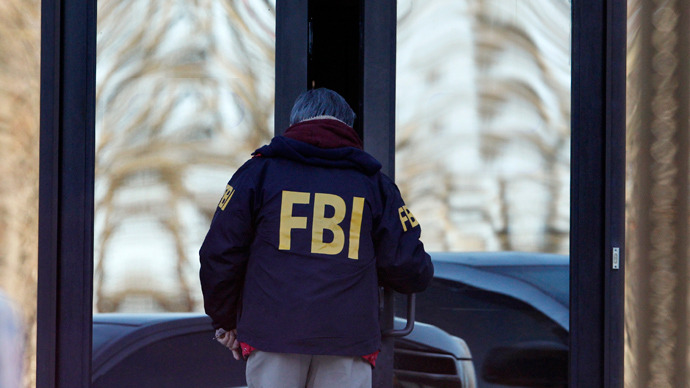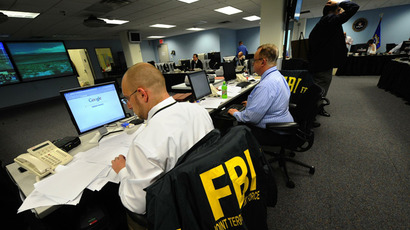Secret US court approved every single domestic spying request in 2012

The United States Foreign Intelligence Surveillance Court quietly rubber stamped nearly 2,000 government requests to search or electronically monitor people in the United States last year, according to a Justice Department report published this week.
The agency, which oversees requests for surveillance warrants against suspected foreign intelligence agents on US soil, released the report to Senate majority leader Harry Reid (D-Nevada), showing that by approving the 1,856 inquiries “for foreign intelligence purposes,” it had granted every single government request in 2012. The FISC's approval rating actually jumped by five per cent from 2011 - when it also approved every application.
The FISC was instituted as part of the US Foreign Intelligence
Surveillance Act (FISA) in 1978, expanded under the George W. Bush
administration, and then reauthorized by Congress for another five
years in December of 2012.
The act, commonly referred to act the “warrantless
wiretapping” law, authorizes the government to monitor US
citizens' phone calls and emails without first proving probable
cause as long as they’re believed to be corresponding with an
individual overseas.
“The 1,856 applications include applications made solely for electronic surveillance, applications made solely for physical search, and combined applications requesting authority for electronic surveillance and physical search,” the report read. “Of these, 1,789 applications included requests for authority to conduct electronic surveillance.”
David Kris, a former top anti-terrorism attorney at the Justice
Department, wrote in the 2012 edition of National Security
Investigations and Prosecutions that the FISA Amendments Act also
gives the government domestic spying power while stripping away
accountability.

“For example, an authorization targeting Al-Qaeda – which is a non-US person located abroad – could allow the government to wiretap any telephone that it believes will yield information from or about Al-Qaeda, either because the telephone is registered to a person whom the government believes is affiliated with Al-Qaeda, or because the government believes that the person communicates with others who are affiliated with Al-Qaeda, regardless of the location of the telephone,” Kris wrote, as quoted by Wired.
In February of this year the American Civil Liberties Union tried to sue the government in a bid to nullify the law. However, the Supreme Court ruled that, because the court proceedings are kept secret and the American Civil Liberties Union has no way to know if it’s been targeted by the FISA Act, they had no legal standing to sue.
When the powers under the law were extended last year, the Senate refused to include any amendments that would have prohibited the CIA from reviewing information taken from government surveillance, one of which was proposed by Sen. Ron Wyden (D-Oregon).
“The amendment I fought to include would have helped bring the Constitutional principles of security and liberty back into balance and I intend to work with my colleagues to see that the liberties of individual Americans are maintained,” Wyden said after the vote.














